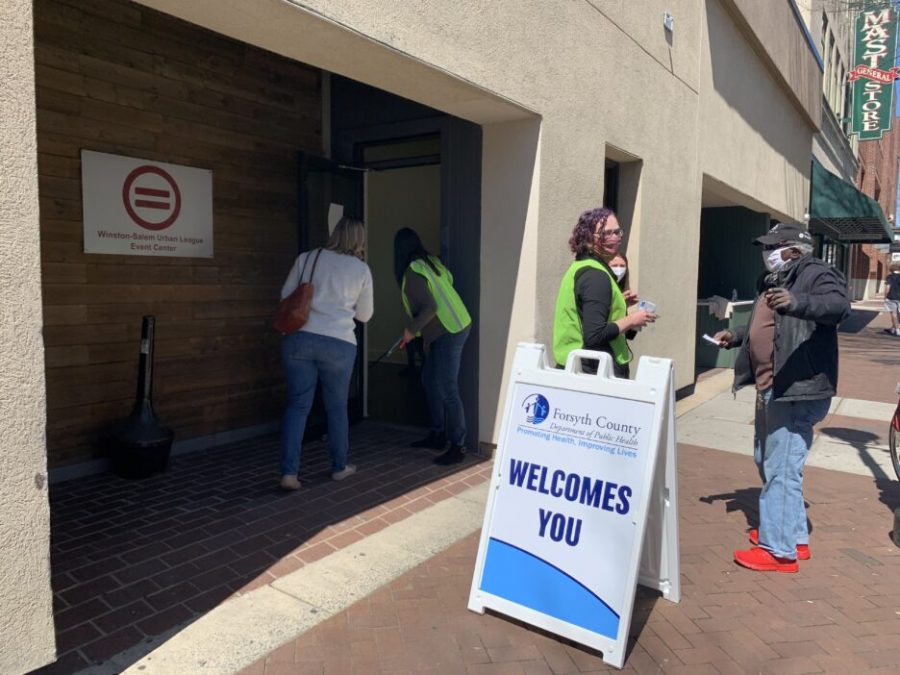Wake up and smell the global warming.
As the planet heats up, major organizations like our very own university, are springing into action to take part in the fight against climate change. By implementing a graduate program and new undergraduate majors relating to environmental science and sustainability, the university is sending students into the workforce who can help enact policy changes that will decrease companies’ carbon footprints and ensure more sustainable business practices.
In the absence and rollback of federal policies related to climate change and emission reductions, it is becoming increasingly important for small businesses, educational institutions and global corporations to lead by example. Climate activists agree.
“We have a responsibility to combat climate change when parts of government are not taking the lead, at least in the executive branch,” said Phillip Hunsucker, a graduate from Wake Forest’s Sustainability Graduate Program and Environmental Sustainability Engineer at Hanesbrand. “All of us have a role to play as individuals and as organizations … we all can do our part.”
In 2014, the university’s Center for Energy, Environment and Sustainability partnered with 26 staff members from across campus to create the Sustainability Graduate Programs that faculty had long been yearning for. These programs provide students with critical thinking skills and hands-on practice, while helping guide them to follow their passions in sustainability.
“The subject of the material conveyed in the classes is to help give them a sense of their own agencies and empowerment,” said Program Director Stan Meiburg. “To show them that in fact, they can be leaders, and they can make a difference.”
And they certainly have made a difference.
After Hunsucker graduated from the program in 2015, he took up a pivotal role in sustainability engineering at Hanesbrand, one of the largest apparel manufacturing brands in the world. He works to identify opportunities to save money in energy and water use, which coincides with a reduction in the company’s carbon footprint.
Hunsucker wants consumers to be confident that when they buy a Hanes t-shirt, they are supporting a company that is doing their part to support the environment.
“Sustainability for us means being accountable; we expect to be held responsible for the way we do business,” he said.
As climate change becomes more pressing with each day, student demand has caused universities like Wake Forest to change their curriculum to satisfy a changing world. Within the last year, the university has approved two environmental majors that students can enroll in starting in the Fall of 2020.
“I think moving forward with the [undergraduate] major and the graduate program is really a sign of the times,” said graduate program coordinator Ashley Wilcox. “And that universities are having to adapt to student wants and demands in higher education.”
Within the graduate program itself, professors place a large emphasis on innovative and creative thinking, focusing on problem identification, rather than just generating immediate solutions.
“We teach systems thinking and design thinking to prepare these folks to go out into the world and really create impact,” said professor Jon Clift. “And that’s not something you find everywhere in the sustainability space.”
Fortunately, universities across the country are beginning to use their platforms to contribute. A university without a sustainability curriculum runs the risk of wasting a huge source of resources and influence.
“Wake Forest is in business because it educates and prepares students to leave and make the world a better place,” said Dedee Johnston, chief sustainability officer. “If we were not focused on education, we are missing entirely the material purpose of the institution.”
This response in major corporations and universities comes largely by virtue of a spirited, young generation rallying behind figures like Swedish teen climate activist Greta Thunberg, demanding policy change and curriculum in universities that takes sustainability seriously.
More and more young people are recognizing that at the rate we are going, they could be feeling the stringent effects of climate change in their own lifetimes.
“The reason it is so important is because of you,” Meiburg said. “You and your cohort are going to bear the impact of a world in which climate is changing to a greater degree than I will.”
The university’s new sustainability programs and undergraduate majors are a tangible move in the right direction to educate students that can spark change.
But is it enough?
Before clicking off his phone interview, Hunsucker’s voice grew louder and more urgent.
“It takes every single one of us,” he said.
“Tell everyone you know.”
“We have a role to play and the time is now.”








